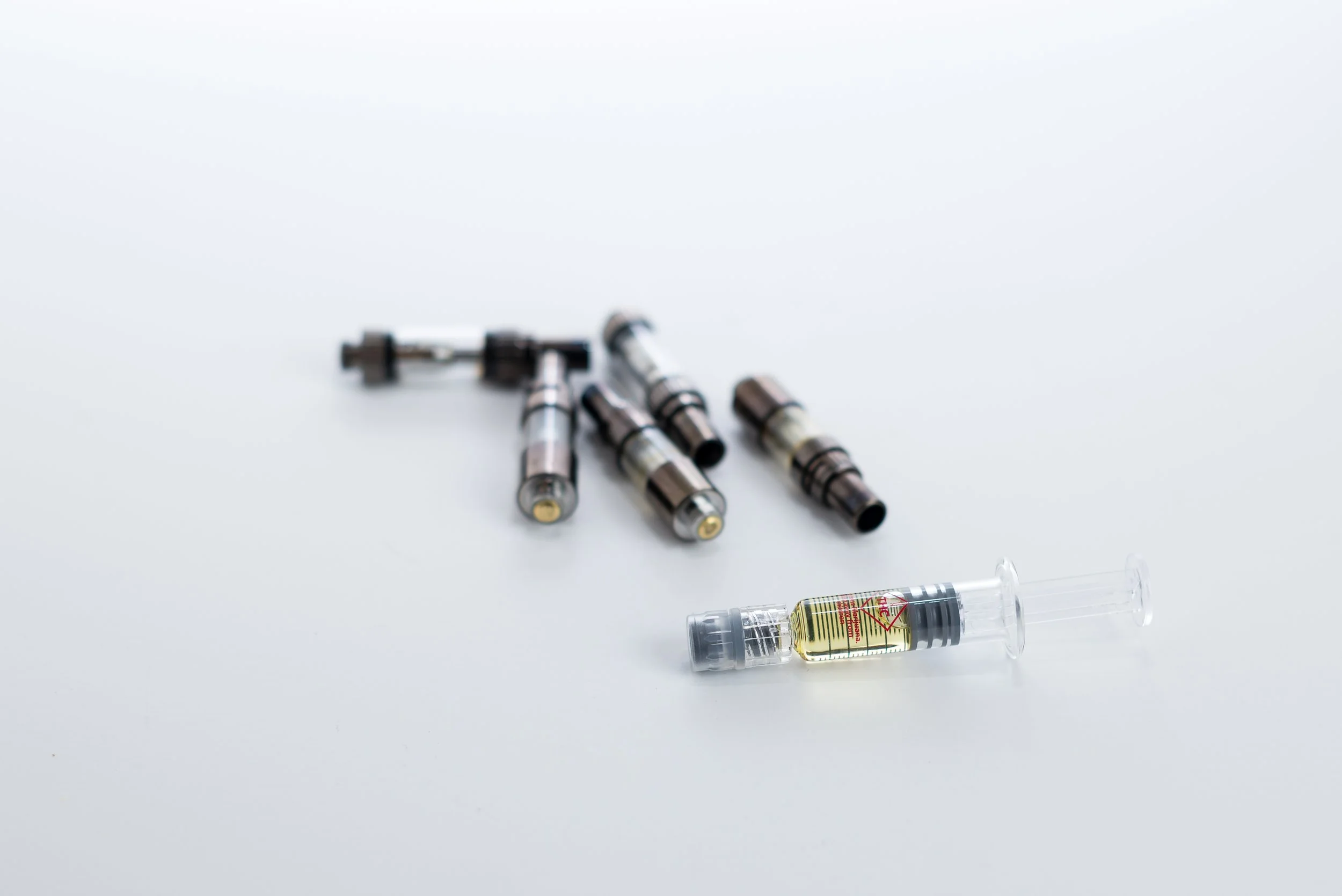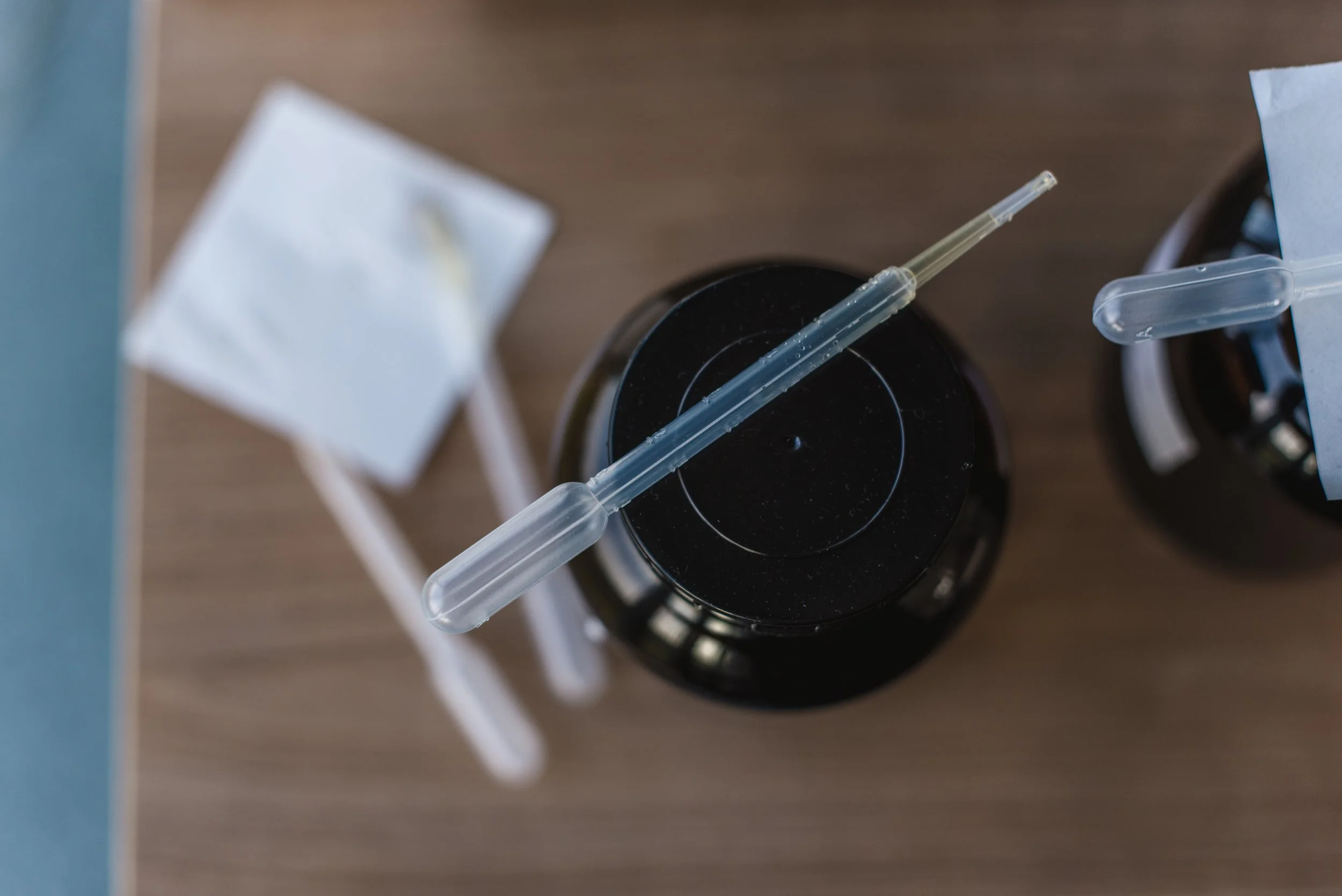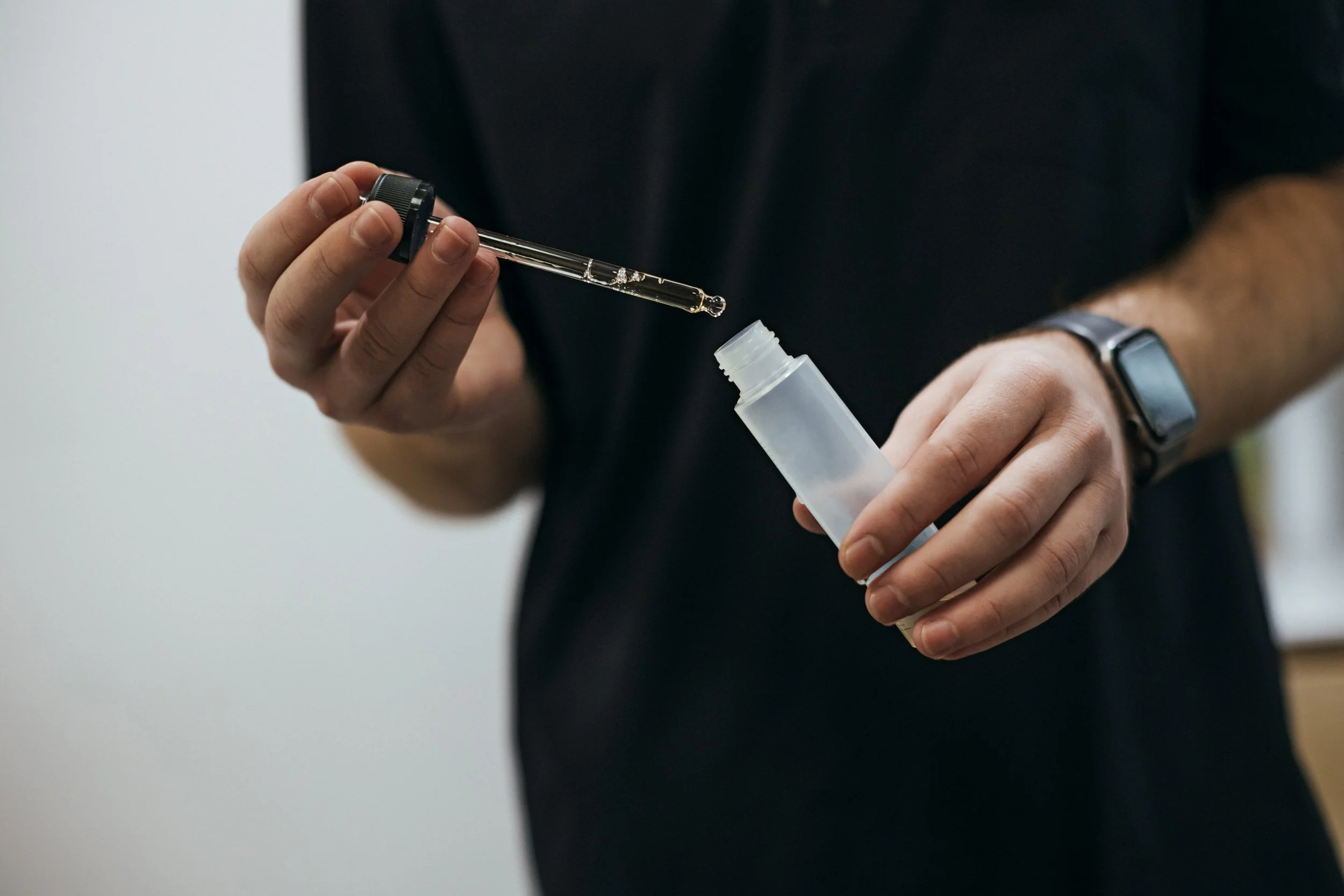Best Needle Materials for Thick or Sticky Vape Oils
Needle material selection plays a crucial role in the dispensing and infusion of thick cannabis oils such as distillate, rosin, live resin, or other sticky concentrates. When the wrong material is used, production teams often face clogged needles, inconsistent dosing, and wasted product. For businesses manufacturing infused pre-rolls or vape cartridges, these challenges directly impact profitability, making resources like how to infuse pre-rolls with oil rosin and distillate especially valuable.
For the cannabis industry, where concentrates can exceed 95% cannabinoid content and vary widely in viscosity, these differences directly influence production efficiency, product safety, and final quality. Research on high-viscosity fluid handling confirms that material compatibility is crucial for preventing clogging, maintaining stability, and ensuring dosing accuracy.
In this guide, we'll cover the best needle materials for thick vape oils, explain how they perform with sticky concentrates, and highlight the key attributes to prioritize for accuracy, safety, and long-term reliability.
Why Needle Material Matters for Thick Oils
Research using molecular dynamics has confirmed that surface roughness increases fluid viscosity near channel walls, which impedes flow in high-viscosity environments, such as those encountered with cannabis concentrates.
1. Impact on Flow and Dosing
Viscous oils, such as rosin or distillate, flow slowly and resist movement. If the needle's inner surface isn't smooth enough, oils stick, causing uneven dosing. One cartridge may receive too much concentrate, while another gets too little, undermining both product consistency and regulatory compliance making it critical to follow ensure consistent dosing in vape cartridge filling best practices.
2. Common Problems with the Wrong Material
Clogging: Sticky residue hardens inside the bore, resulting in production delays and increased maintenance costs.
Chemical Damage: Inferior metals may corrode upon exposure to terpenes or solvents, potentially leading to contamination.
Product Loss: Oils trapped in clogged or degraded needles are wasted, directly impacting margins.
Best Needle Materials for Sticky Vape Oils
Surface chemistry matters, especially in solvent-rich environments, where stainless steel alloys exhibit significantly better corrosion resistance than standard steels due to their passive films and molybdenum content, making them ideal for handling sticky, terpene-rich oils.
1. Stainless Steel Needles (304 vs 316 Grade)
Stainless steel is the industry standard because it combines strength, reusability, and resistance to heat.
304 stainless steel: Affordable and commonly used for general dispensing.
316 stainless steel: More resistant to solvents and corrosion thanks to its molybdenum content, making it a better option for terpene-rich concentrates.
Stainless steel needles can be sterilized and reused multiple times, making them cost-effective in high-volume production environments.
2. Teflon-Coated Stainless Steel Needles
For especially sticky oils, stainless steel with a PTFE (Teflon) coating offers key advantages:
Non-stick surface: Reduces friction and prevents oils from clinging to the bore.
Faster flow: Oils pass through more smoothly, reducing the chance of clogs.
Easy cleaning: Residue wipes off quickly, minimizing downtime.
This makes them ideal for rosin and live resin, which tend to harden or crystallize.
3. Ceramic and Glass Needles
Ceramic and borosilicate glass are chemically inert, meaning they don’t react with terpenes, cannabinoids, or solvents.
Pros: Safe, non-reactive, and excellent for small-batch precision.
Cons: More fragile, less durable under pressure, and not suited for heavy automation.
They work best in lab settings or specialty applications where purity is prioritized over speed.
Handling Thick and Sticky Concentrates
Thick cannabis oils present unique challenges during dispensing. Their high viscosity makes them resistant to flow, and if the wrong needle setup is used, clogging and dosing errors are almost guaranteed. Selecting the correct needle size, heating method, and material pairing is crucial for seamless operations.
1. Needle Size and Bore Options
Wide-bore needles: Larger diameters allow sticky oils to pass through more easily, minimizing the risk of clogging. These are best for high-throughput applications where speed is critical.
Fine-bore needles: Provide greater dosing accuracy but are more prone to blockage when used with rosin or live resin. In these cases, heating or coatings may be necessary to maintain smooth flow.
2. Preventing Clogs in High-Viscosity Oils
Heated dispensing systems: Warming thick oils lowers viscosity, helping them move more easily through the bore. This is particularly useful for rosin, which tends to harden at room temperature.
Material and coating strategy: Pair stainless steel needles with non-stick coatings, such as PTFE, to reduce surface friction and prevent residue buildup. This combination significantly cuts downtime spent on cleaning.
3. Compatibility with Common Concentrates
Distillate: Naturally flows more easily than other extracts but still benefits from corrosion-resistant stainless steel to avoid long-term degradation.
Rosin and Live Resin: Highly sticky, waxy, and prone to crystallization. These require coated stainless steel or heated systems to maintain smooth dosing and prevent blockages.
Heat Resistance of Needle Materials
Material choice is critical when working with sticky cannabis oils and heated dispensing processes. Studies show that austenitic stainless steels, such as Type 316, maintain strong mechanical properties at temperatures up to 482°C (900°F), offering reliable creep strength and dimensional stability in high-temperature environments.
Performance Under Pre-Heated Oils: Many cannabis production facilities pre-heat thick oils (like distillate or live resin) to improve flow. Stainless steel needles, especially Type 316, resist deformation and retain their shape even after repeated heating cycles, ensuring consistent dosing performance.
Maintaining Strength at High Temperatures: Among stainless steel grades, 316 stainless steel is notable for its exceptional durability under elevated temperatures. It offers excellent thermal creep resistance, making it ideal for continuous, high-throughput setups that require heating for regular operation.
Chemical and Solvent Resistance
Cannabis concentrates contain strong solvents like terpenes, so needle materials must resist chemical attack to protect oil quality.
Reaction with Terpenes and Cannabinoids: Terpenes can react with low-grade metals, altering flavor and purity. Stainless steel and glass remain stable, keeping oils intact.
Protection Against Corrosion or Leaching: 316 stainless steel resists pitting and prevents metal leaching, ensuring both consumer safety and product integrity.
Durability and Longevity
Needle durability is critical in cannabis production, where repeated use, high pressure, and contact with sticky oils can quickly wear down weaker materials.
1. Resistance to Bending or Breaking
Needles in high-throughput machines are subject to pressure. Stainless steel is the most resilient material, while ceramic and glass are more prone to breaking or chipping.
2. Reusable vs Disposable Options
Reusable stainless steel saves costs in automated facilities.
Disposable plastic or glass may be suitable for small-batch applications where sterility is more important than throughput.
Accuracy and Dosing Control
In cannabis manufacturing, precision and consistency are critical, since even minor dosing errors can affect product quality, compliance, and consumer safety.
Precision in Small Quantities: Fine-tipped stainless steel needles can measure down to 0.05 grams, essential for pre-roll infusion and cartridge filling.
Consistency for High-Throughput Runs: Automated systems require a uniform workflow. Coated stainless steel ensures precise dosing even in 24/7 production cycles.
Automation Compatibility
Automated cannabis systems demand needles that can run continuously with precision and minimal downtime.
Needles for Automated Infusion Systems: Machines like Jiko and Jiko+ work best with stainless steel needles coated for non-stick performance, ensuring smooth flow and accurate dosing at scale.
High-Volume Production Requirements: In large runs, durability is crucial; clogs or breakages slow production and erode margins, making robust, coated stainless steel the most reliable choice for this application.
Safety and Product Integrity
In cannabis manufacturing, needle materials must protect oil purity and meet strict hygiene standards.
Non-Reactive Surfaces: Stainless steel and glass are non-reactive, preventing unwanted chemical reactions and preserving the flavor and potency of the product.
Maintaining Clean and Safe Oils: Stainless steel can be sterilized through autoclaving, ensuring compliance with regulated market hygiene requirements and maintaining the safety of oils for consumers.
Choosing the Right Needle Material
When working with thick or sticky vape oils, 316 stainless steel needles with PTFE (Teflon) coating stand out as the best choice. They deliver long-lasting durability, resist heat and solvents, prevent clogs with smooth non-stick flow, and ensure precise dosing for compliance and quality.
While glass or ceramic may suit the needs of small-batch purity, they lack the scalability required for continuous production. For labs and cannabis brands focused on efficiency and growth, coated stainless steel is the most practical and cost-effective solution.
Upgrade your production with Sorting Robotics. Book a demo today and experience automation-ready precision.
Frequently Asked Questions
1. Can needle coatings wear off over time?
Yes, frequent use with sticky oils can cause coatings, such as PTFE, to degrade. Regular inspection and replacement are recommended for consistent performance.
2. Are reusable needles better than disposable ones for compliance?
Reusable stainless steel needles can be sterilized to meet compliance standards, whereas disposable needles are more suitable for single-use testing or research and development (R&D) purposes.
3. What gauge needle works best for vape cartridge filling?
Typically, needles of 14-18 gauge are recommended for thick oils. The exact choice depends on the oil viscosity and the required dosing precision.
4. Do needle materials affect oil flavor or aroma?
Yes. Low-quality metals may react with terpenes, altering flavor: stainless steel, glass, and ceramic preserve natural profiles.
5. How often should needles be replaced in high-volume production?
It depends on the material and coating. Stainless steel with PTFE may last for thousands of cycles, while glass or uncoated options wear faster.



